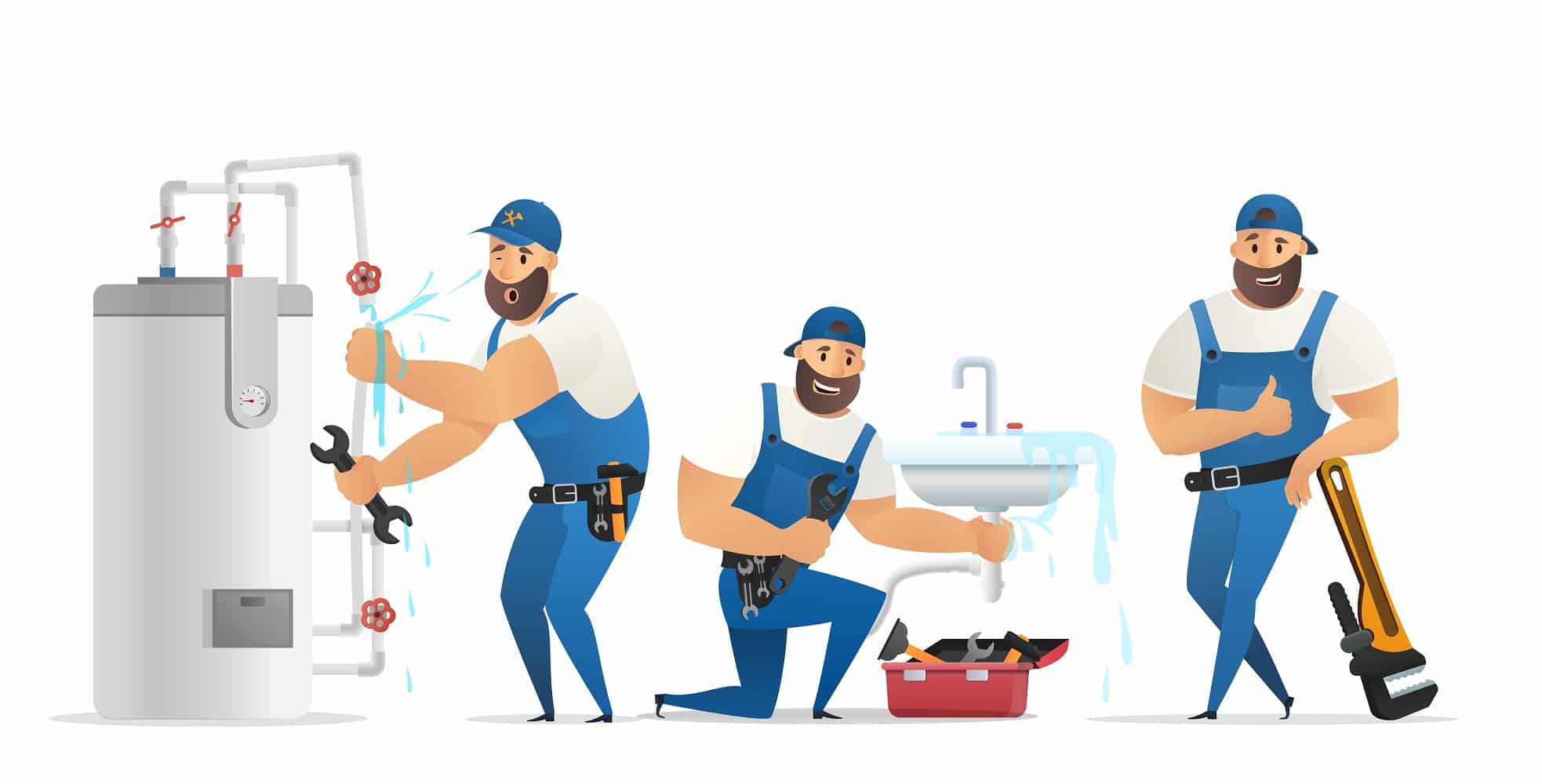A gushing toilet or a flooded basement is what nightmares are made up of!
No matter what we do to prevent a major plumbing issue, it’s highly unlikely that we won’t end up facing one in our lifetime. Even if you’ve got a self-proclaimed degree in fixing that burst pipe, there’s no shame in accepting that certain situations just can’t be tamed.
This is where emergency plumbers come into the picture. While their armors might not be shiny, they are the knights who save our day and are available on call 24×7. Like any other unforeseen spend, the cost of calling an emergency plumber can disrupt your monthly budget.
So, to help you get a fair idea of how their services are priced, we’ve listed some points that’ll help you to stay prepared for the d-day. We’ve also included some key factors to keep in mind before finalizing the deal.
Without further delay, let’s begin!
Related Articles
Plumbing Safety Basics Do’s and Don’ts for DIY Wannabes
Learn How to Turn Off the Water for Plumbing Repairs
13 Best Wireless Water Shut Off Valves | Smart Valve Guide
13 Best Kitchen Sink Faucets to Consider | Buyer’s Guide + Reviews
21 Best Tool Bags Right Now to Consider | Buyer’s Guide
Pricing Strategies for Plumbing Services

- Average Plumber Costs
Most plumbers charge their fees on an hourly basis, with rates starting from as low as $45 to as high as $200 per hour. Apart from their wages, the rates are decided in a way that covers a variety of other costs like vehicle maintenance, equipment price, insurance premiums, etc.
In general, handymen rates run lower, since they deal with less complicated plumbing jobs. Professionals with a proper license, on the other hand, may charge anywhere between $80 to $130 for the general tasks like fixing a sink or replacing a pipe.
Additionally, they may also include the travel fee in one of the following ways:
- Charge anywhere between $50 to $300 as travel cost, depending on the location
- Add an average service charge of $150
- Levy a flat rate of $100-$350 for the first hour, followed by lower rates for the next hours of service
- Offer a flat fixed rate for some common issues
- Flat-Rate Prices
Many plumbers offer a flat rate for some of the more simple and less time-consuming issues, like fixing the toilet or unclogging the drain. Such rates run anywhere between $100 to $400, irrespective of the time taken to complete the job. However, more complicated plumbing jobs may demand more labor charges.
- Journeyman vs. Apprentice
In case the master plumber is unavailable at the moment, you may be assigned a journeyman or an apprentice for the job. For your knowledge, an apprentice works for about 5 years under the supervision of a master plumber. During this time, they acquire hands-on experience on a variety of projects, which enables them to take the test for becoming a journeyman.
While a journeyman can make anywhere between $16 to $34 per hour, an apprentice generally charges half of that. But there’s more to the story; these rates are wages only and don’t include additional costs like equipment, travel fees, and maintenance. So don’t get confused if your final bill is more than what you had calculated.
On a side note, expect to pay an additional charge of anywhere between $25 to $75 if a master plumber accompanies his subordinate.
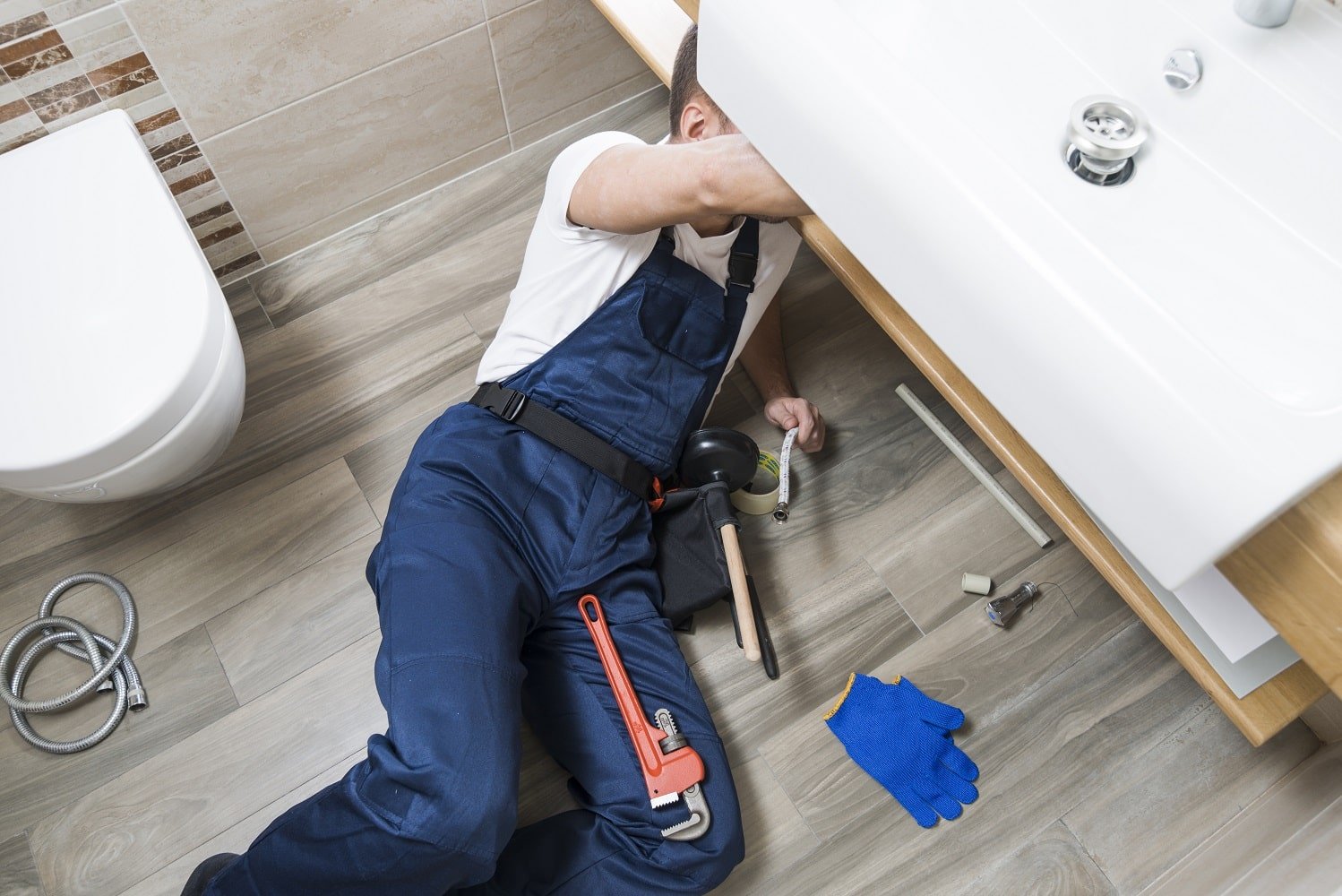
- Union Fees
It’s good to know that many, but not all plumbers belong to some union that affects their charges. Depending upon the location, these union fees make up about 20% to 25% of their members’ wages in the form of insurance, pension, and other such charges. This may be a reason why some plumbers charge more than the others.
- Commercial vs. Residential Plumbers
A clogged toilet may show up in your office or at your home. The average hourly charge for commercial plumbers is nearly $100, while residential plumbers charge around $80 per hour. And if you think that you can fix your office’s toilet for a lower price, then we’re sorry to spoil the deal.
Since both these categories require varied equipment and specialized skill sets, residential plumbers rarely take up commercial projects and vice-versa.
- Service Call Costs
Plumbing service call costs are priced anywhere between $100 to $300 and cover a range of the more common issues like leaking pipes, fixture repairs and clogged drains. In simple terms, this is an all-inclusive price, offered for mostly the first hour of work.
- Weekend, Holiday and After-Hour Charges
Charges can be drastically high, depending on the time of the day you call-in for booking an appointment. As you’ve guessed by now, off-hour appointments are more expensive than that of business hours. One way of doing this is to charge higher trip fees, which can go above $350 in extreme cases. Furthermore, the hourly rates can also reach as high as $400.
The general trend among most plumbing services is to charge one-and-a-half times more during the evening, twice the rate for weekends and up to thrice the charges on holidays.
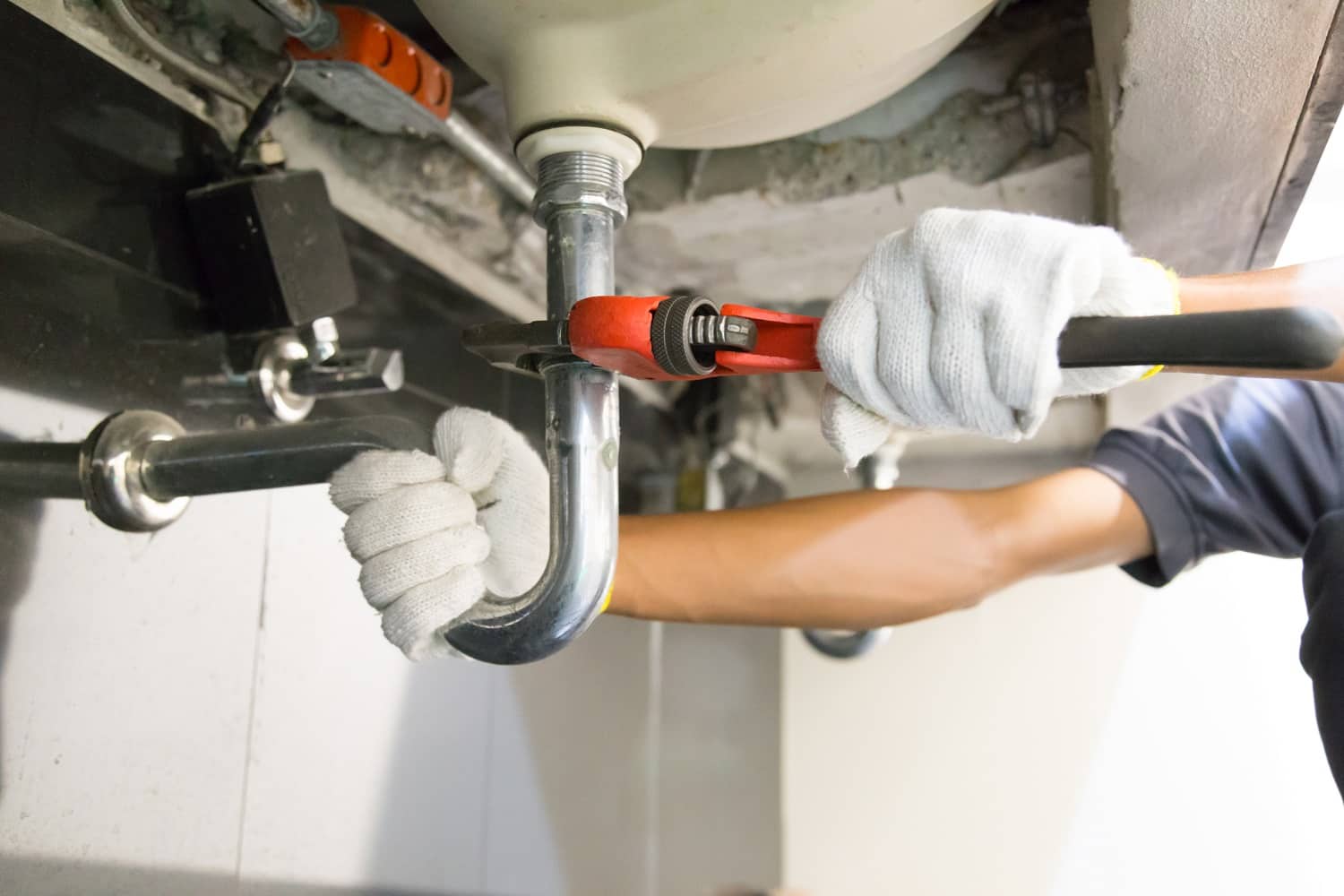
- Call-Out Fees
As we have mentioned above, your final bill will be a combination of various factors like hourly wage, vehicle maintenance, and trip fees, or call-out fees. These charges can range anywhere between $50 to $300, based on your location and the distance that the plumber needs to travel. Remember, this charge is additional to the labor costs.
Depending on the agency’s pricing policy, the trip fees may also be charged in one of the following ways:
- Offer a flat-price within a certain distance of the shop, and add a mileage pricing past the said distance.
- Some shops do away with the apparent trip fee. Instead, they simply offer a 1 or 2-hour minimum price. So, if they complete the job in less than an hour, you’ll pay for the minimum amount of time. This is nothing but a way to cover other costs.
- Other Costs
The costs of fixing a leaking pipe or clogged drain are not only limited to paying for the plumber’s charges. Depending on the adversity of the situation, you may have to replace certain parts, which can be either cheap or expensive. A good practice is to enquire if the plumber’s shop sells such parts, as the chances are that you might get a discount for good.
Besides, certain jobs like fixing the sewage pipe come with an added task of cleanup. You may ask your plumber if they offer such services, and the cost involved. Alternatively, you can also arrange for a cleanup service beforehand, if they charge comparatively less.
Let’s face it; nobody wants to fix one problem only to end up with another. So, be sure to account for all the other costs that you need to incur to get things back to normal.
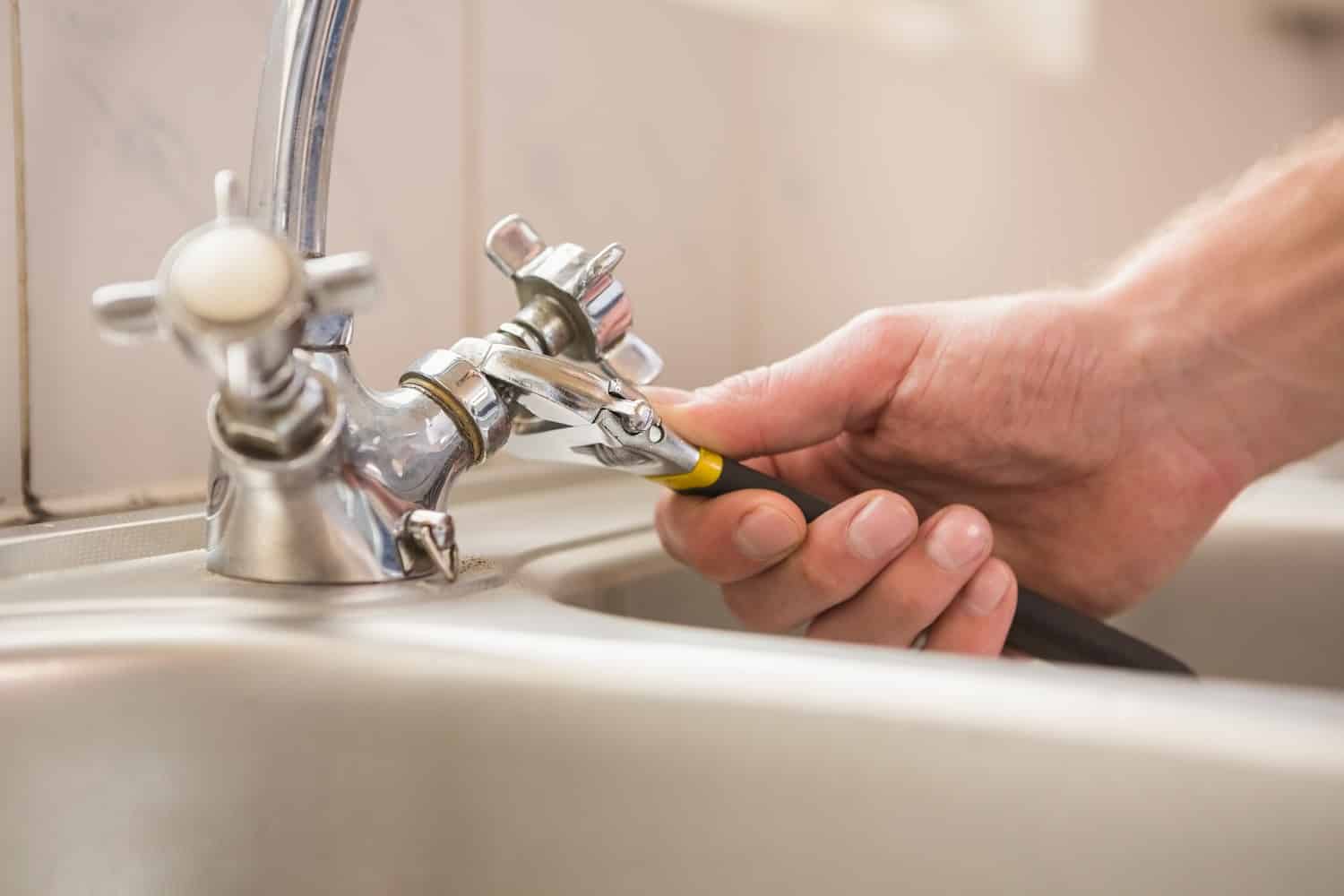
- Plumbing Price List
To make your lives easy, we’ve compiled a list of some of the common plumbing services and the average cost involved. Again, the higher end of the range will vary according to a number of factors, like location, trip fees, severity of the situation, etc.
- Fixing a leak – $150 to $700
- Fixing a toilet – $150 to $300
- Unclogging a drain – $150 to $300
- Drain line repair – $250 to $1,000
- Main water line repair – $300 to $1,250
- Sewer line cleaning – $175 to $450
- Sewer main-line repair – $1,000 to &4000
- Faucet installation – $150 to $300
- Septic tank repair – $600 to $2,500
- Water heater repair – $200 to $900
Choosing a Plumber
Agreed that considering the budget is extremely important before you can finally close the deal. But there are certain factors that ensure you get your money’s worth, no matter how cheap or how expensive the price quotation is. Here’re some points that we feel should be on your mind before you make the final call.
- Experience
There’s no better feeling in the world than to know that you have the services of an experienced professional. And experience comes with a price! Even though you may be tempted to try the service that offers the bare minimum at nominal costs, keep in mind that nothing beats the touch of experience.
The last thing you want is to pay twice for the same task, in case your cheaper alternative is incapable of fixing the problem, or ends up aggravating it.
- License
Though licensing is not mandatory everywhere, it’s good to know that the plumber at your doorstep is knowledgeable, recognized and qualified to do his job. Another advantage of availing the services of an licensed plumber is that in case anything goes wrong, you’ll have your costs covered.
- Response Time
True that emergency plumbers can be contacted at all times, but this doesn’t necessarily mean that can solve your problem right away. It may take him several hours to reach you, depending on how far the plumber is from your location.
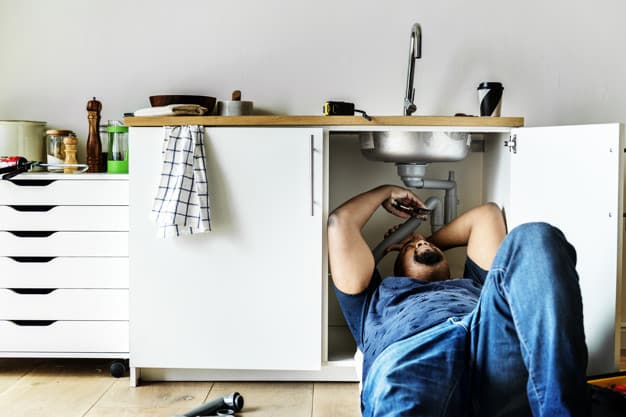
- Estimate
You may ask your plumber or plumbing service to provide you with an in-detail quotation of the final price to be paid. This should include everything, from wages to replacement costs and trip fees. Generally, it’s better to get an hourly rate, so that you know you are paying in accordance with the time being spent on your problem.
Another point to note is that many services tend to overlook the post-cleanup process. In case they don’t mention the cleanup clause in the estimate, ask them whether or not the total cost is inclusive of this service.
While at it, don’t forget to ask about the payment deadline and mode of payment. Many plumbers prefer to be paid upon the completion of the job, even if they are charging you on an hourly basis. Most plumbers will send you a bill or accept a cheque or card at the time of the service.
- Know Your Plumber
Just like you need a residential plumber for your in-house issues, it’s important to know that not all plumbers can handle or prefer to handle all types of jobs. In general, the family or general plumbers are meant for basic repairs. A plumbing contractor, on the other hand, deals with bigger projects like new constructions or large scale remodellings. They usually don’t entertain emergency calls. However, most services offer both the categories.
A good tactic to reduce the response time is befriending a family plumber. Since they mostly cater to emergency calls, it’s unlikely for them to put you up on the priority list, until you’re a regular customer. All you have to do is ask such a professional to attend your non-emergency repairs and installations during normal hours. This way, you’ll have his attention when the situation demands.
Pro Tip
Always make a note of what emergency plumbing situations find a place in your home insurance. This can bring down the cost of additional charges, such as installation of new pipes or replacing the older ones. However, be careful to balance such costs against the deductibles, to get a fair idea of how it will impact the insurance premiums in the future.

Final Words
We understand that hiring a plumber for emergency needs is meant to be fast and easy. But unfortunately, there are a dozen things that need to be considered before you can make the final call. Plumbing is not an inexpensive service, and even the mid-level difficult jobs can require you to shed hundreds of dollars.
You should have a thorough understanding of the plumbing services work near you. And do this before-hand, not when that clogged sink floods your kitchen. If the plumber or service station agrees to provide a free quotation of its major services, don’t shy away from getting hold of one. This way, you will have an exact idea of how much to spend for that burst pipe.
The most popular plumber in your area may not be able to fulfill your needs. Likewise, a relatively unheard service can do the job in minutes.
With this, we’ve come to the end of our emergency plumber hiring guide. We hope we’ve been able to answer all your queries, and help you stay well-prepared for that unfortunate incident. Let us know about your thoughts in the comments down below.
Signing off!



